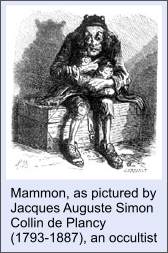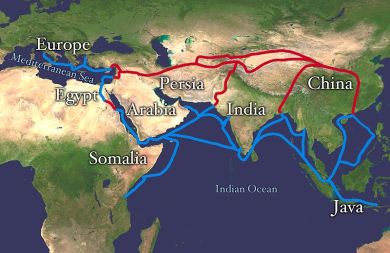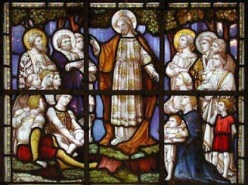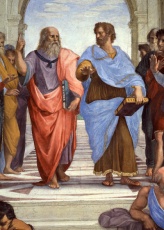Why does our knowledge of love’s fullness have to be so painful to obtain? Why doesn’t God completely reveal to us our full nature?
By giving His power, the power of the word, to man, God destroyed His absolute power to reveal Himself and the secrets of creation. But before man appeared on the scene, the secrets had been told in mammon – in the temporal – which reflects them oppositely and truly, as though in a mirror, itself material, a form that is real is seen, albeit its “mirror-image” is not its reality in being. Thus, truth-bearer must make unto himself a friend of mammon, “unrighteous” as mammon is, and he must reveal the working of the flesh, offensive and error-provoking though his words may be.
Being part of the material realm limits us in coming to full knowledge of the reality and fullness of God. If we want LIFE, we must deal with the limitations and consequences thereof. The Apostle Paul says as much in his letter to the Romans:
For I consider that the sufferings of this present time are not worth comparing with the glory that is to be revealed to us. For the creation waits in eager longing for the revealing of the sons of God. For the creation was subjected to futility, not willingly, but because of him who subjected it in hope that the creation itself will be set free from its bondage to corruption and obtain the freedom of the glory of the children of God. (Rom. 8:18-21)
According to Paul here, we were not created by God already perfect, then fell, and now are in the process of regaining paradise. Rather, we have been subjected to futility from the beginning by our creator! Why? In hope that we will come to know the freedom of being children of God (being set free from slavery to mere mammon). It is the only way we can know love for ourselves. In other words, the Eden story isn’t a time-based story; it is rather an eternal happening, goading and guiding us into a better future. The story is a “trap” God sets for us, striving for the “beginning,” which in eternity is also our “completion.”
And here Preston Harold sounds like a modern day Paul:
Mammon is the mirror, and perforce the mirror lies – for it, itself, is not what it reflects in its being or as its being. God, First Cause, love, life itself, is not matter as revealed in mammon; God…is revealed through mammon’s examination to be “spirit,” or a type of “energy” unknown and unknowable in physical terms…. The reality underlying the world of appearances cannot be reduced to physical terms, it is only indirectly knowable as reflected in mammon’s mirror, and as it is intuitively experienced by man…. But in mammon’s mirror, in evil, or in pure matter, or in life’s temporal history with all its evil-doing, the image of good and its working may be beheld. This is to say, there is evidence that life is building into man a factor that will in time deliver him from evil without robbing him of its desirable aspects, and that this factor is in truth the saving grace of life.
Amen! Until next time, peace.









